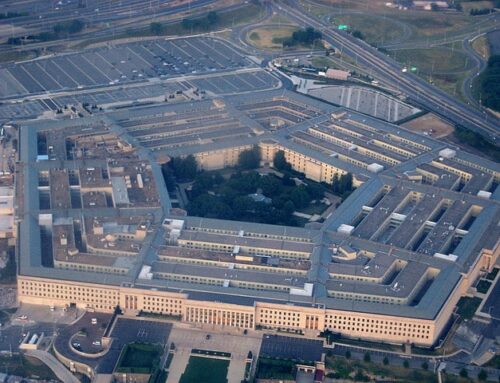What if you bought a new fridge but there was just one teensy problem: the freezer didn’t work?
Actually, let’s expand this analogy. What if you manage an apartment complex and you’re buying a couple of dozen new refrigerators for all your units? You get the first six refrigerators installed, and then you discover the freezer doesn’t keep your ice cream frozen. You’d probably balk at buying the next 18 refrigerators from the same supplier and you’d have to replace the first six with ones that have a working freezer to meet the needs of your tenants.
That’s the Good Humorous (get it?) analogy to where the United States Navy finds itself with the Littoral Combat Ship (LCS). Except they’re a lot more expensive than a fridge. The Navy contracted for a whole bunch of LCS, in different combat configurations. Unfortunately, at least the anti-submarine warfare (ASW) version of the LCS can’t meet the mission to protect itself and the fleet from today’s submarine threat. Because of this shocking lack of mission-worthiness, the Navy wants to decommission nine of the existing LCS fleet tasked with ASW.
Chief of Naval Operations (CNO) Admiral Michael Gilday recently told Congress “The primary reason why the nine LCS ships [are on] the retirement list has to do with an anti-submarine warfare system. That was the primary battery, main battery, of that ship, that did not work out technically. So after about a year and a half study, I refuse to put an additional dollar against a system that wouldn’t be able to track a high-end submarine in today’s environment.” (Emphasis added)
Problem is some lawmakers are responding to the CNO’s refusal with a parochial refusal of their own.
The LCS program has been plagued with troubles for years. And everyone knows it. In fact, then-Secretary of Defense Chuck Hagel said the LCS could only be operated in a “relatively permissive environment” when cutting the buy from 52 to 32 total ships back in 2014. Considering warships are supposed to operate in – well – wars, how would you feel if one of your family members was stationed on a warship that might not survive in a non-permissive environment? In our view, that’s breaking the compact the Navy has with its sailors.
But, as we’ve frequently written, lawmakers take every possible measure to block the Pentagon from retiring legacy systems: aircraft and ships in particular. They do this by putting in sneaky “General Provisions” language in the annual Pentagon spending bill, and they do it by outright blocking the maneuver in the Pentagon policy bill, the National Defense Authorization Act (NDAA).
In the case of the Navy’s request to retire the LCS in the FY23 budget request, lawmakers did both. The Pentagon spending bill allows only four of the retirements to occur. The original House Armed Services Committee (HASC) version of the NDAA allowed the Navy to retire all nine LCS. But during HASC mark-up of the bill, Rep. Golden (D-ME) offered an amendment to block the retirement of five of those ships and it succeeded. Now the Chairman of the HASC, Rep. Adam Smith (D-WA), is leading the fight to allow the Navy to retire these less than useful ships with an amendment he looks to offer when the whole House of Representatives considers the bill. And Taxpayers for Common Sense is working with other fiscal conservative groups to support the Smith Amendment. Allowing the retirement of all nine ships would lead to an estimated five-year savings for operating and maintaining them from FY23 through FY27 of more than $4.3 billion. Lawmakers should get out of the way of Navy leadership and allow the decommissionings to happen.
Back to our ice cream analogy. A strange phrase sometimes heard in military circles is the problem of the so-called “self-licking ice cream cone.” You won’t find it in a standard dictionary, but popular usage of the term describes self-perpetuating programs that serve no purpose other than sustaining themselves. We won’t go so far as to say that all LCS hulls should be scrapped, but we do think the program is pretty darn near to existing just to sustain itself. A lot of military careers and contractor profits are tied up in continuing to build the LCS, whether they meet their missions or not.
We’re leading a group of other fiscal conservatives, asking lawmakers to support the Smith Amendment and allow the decommissioning of the nine LCS the Navy seeks to retire. We agree with the Chief of Naval Operations; not one more dollar should be spent on ships that don’t meet their mission.











Get Social